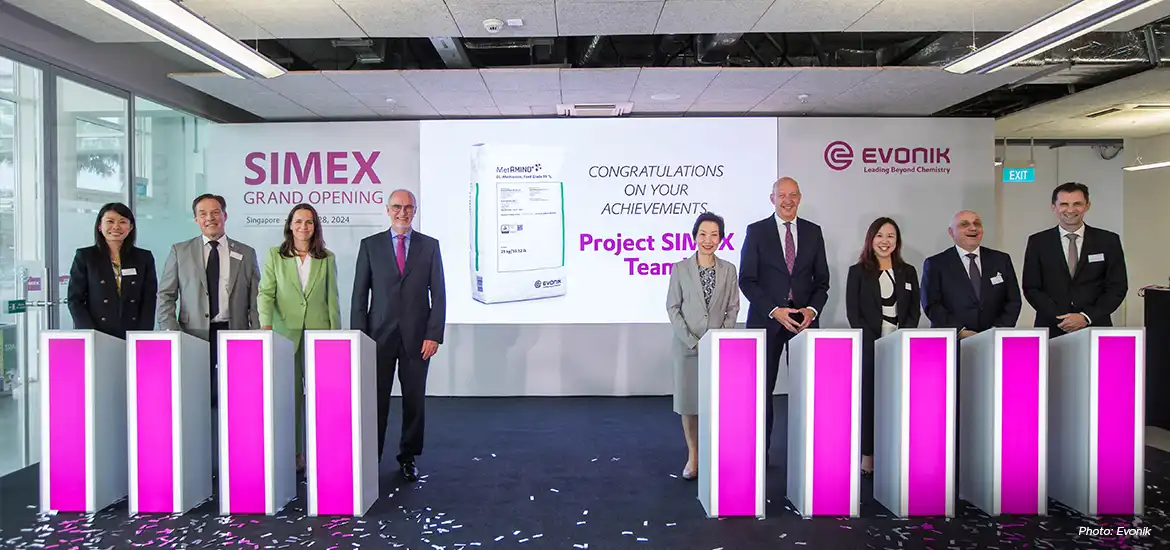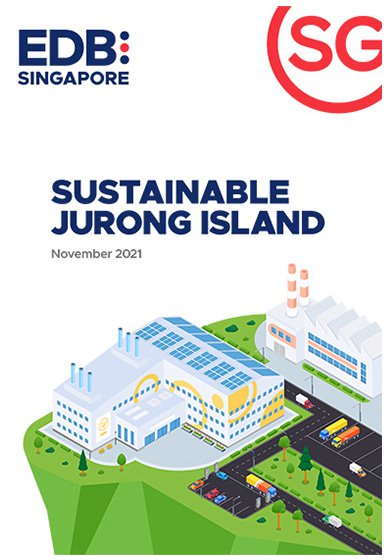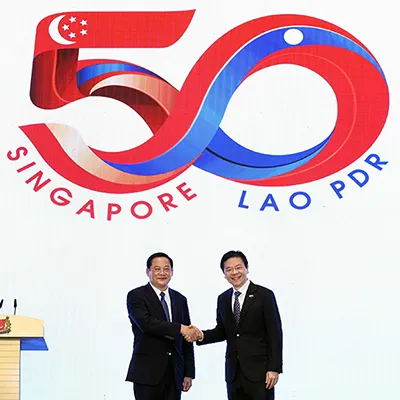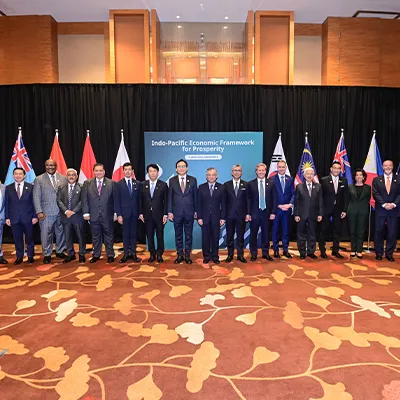“Singapore is important for us to remain competitive in the global market,” he added. “It is our gateway to extend our business in Asia.”
Evonik has also “long recognised the potential of the region”, said Asia-Pacific president Claus Rettig. This is why the company has “diligently expanded (its) presence here over the years”.
In the last two years, Evonik has made partnerships and opened new facilities in China, India, and Japan, to name a few.
In Singapore, Evonik is also building a new biodiesel catalyst production plant that will sit adjacent to the methionine facility in Jurong Island. When opened, this will be the biggest of its kind in the world, noted Rettig.
“I think this shows we are trying to cover the entire region and use the strengths of the different countries,” he added.
Pursuing sustainability and growth
The expanded plants not only mark a new milestone for Evonik, but also signal the start of “the next bound of growth for Singapore’s energy and chemicals industry”, said Minister for Sustainability and the Environment Grace Fu, who was also present at the opening ceremony on Wednesday afternoon.
Singapore has evolved from being an oil storage and distribution hub, to an “attractive global destination for speciality and sustainable chemicals”, she noted. This, in large part, is due to the increasing demand for consumer and green products. For one, Asia’s growing population has driven the rise of meat consumption, which in turn has driven the demand for chemicals such as methionine.
Concurrently, the demand for green chemicals is also rising, pointed out the minister, buoyed by government policies on the use of sustainable materials and consumers choosing sustainable products.
Singapore thus wants to ride these trends, by seizing growth opportunities in speciality and sustainable chemicals, said Fu, who singled out “fast-growing” markets such as nutrition and agriculture, care chemicals, pharmaceuticals, and mobility.
Even as Singapore seeks to pivot the industry towards growth areas, chemicals companies themselves must also grow sustainably, noted Fu in her speech.
The Sustainable Jurong Island strategy was thus launched in 2021 to catalyse this transition, she said.
By 2030, Singapore aims to increase the output of sustainable products in the energy and chemicals sector by 1.5 times from 2019 levels. It also wants to achieve at least two million tonnes of carbon abatement per annum through low-carbon solutions.
The expanded facility has helped Evonik with its sustainability goals. The methionine facility has reduced the product carbon footprint of the animal protein ingredient by six per cent, when compared with before the expansion.









